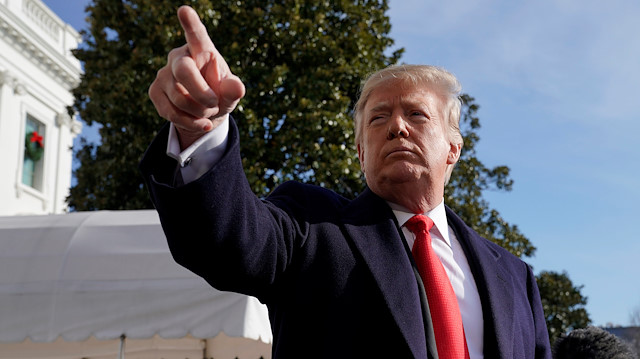
The U.S. Congress will have a difficult time undermining the Trump administration's close ties with Saudi Arabia, despite a Senate vote this week to consider a resolution that would end support for the Saudi-led war in Yemen.
On Wednesday, 14 of President Donald Trump's fellow Republicans, who hold a slim majority in the Senate and rarely defy his wishes, joined Democrats to vote 63-37 to advance the measure, paving the way for a possible vote to pass it next week.
The unusual result underscored lawmakers' frustration with what they see as the Trump administration's inadequate response to the murder of prominent journalist Jamal Khashoggi at a Saudi consulate and the deepening humanitarian disaster in Yemen.
Senators from both parties have been increasingly critical of Crown Prince Mohammed bin Salman, the kingdom's de facto ruler who the CIA believes ordered the killing of his critic. Trump has stood by the prince.
But the parties broke almost immediately over how to move ahead. Democrats demanded a vote on the resolution as it stands, while some Republicans who voted "yes" said they wanted it amended, or that it would prompt the White House to act.
"What I'd love to see happen is to have the administration address it," Senator Bob Corker, the Republican chairman of the Foreign Relations Committee, told reporters on Thursday.
The White House did not respond to a request for comment.
Corker, one of the 14 Republican "yes" votes, said he was discussing a way ahead, including possible amendments, with Senate Republican leaders and Democrats.
Aaron David Miller, a former State Department official who is now a scholar at the Wilson Center, said the Senate vote marked a "significant inflection point" in U.S.-Saudi relations. However, he added, "The problem is that you've got to maintain a certain degree of momentum. The House isn't going to vote on this."
Even if the Senate passes the resolution, to become law it would have to also pass the House of Representatives, where Republicans hold a majority until January. Democrats said they had no indication that the House Republican leaders would allow a vote.
Speaker Paul Ryan said at a Washington Post event on Thursday that he opposed the Senate measure. Republican leadership aides did not respond to requests for comment on whether they would allow a vote.
If the resolution does not become law, Senator Bob Menendez, the top Democrat on the foreign relations panel, said lawmakers could try to add legislation punishing Saudi Arabia to a spending bill that Congress must pass by Dec. 7 to avoid a federal government shutdown.
But that would need bipartisan support to pass, and the spending bill already faces tough hurdles. Trump has threatened to allow a shutdown to force Congress to give him billions of dollars to build a wall on the border with Mexico.
A Saudi resolution would likely pass the House when Democrats take control in January, after sweeping victories in November's mid-term elections. But Trump's Republicans will hold a larger majority in the new Senate, and many of his critics within the party, including Corker, will have retired.
Other things could also influence Congress. If special counsel Robert Mueller issues his report on Trump, Republicans might be less likely to vote against the president. Or there could be advances in Yemen peace talks, a point that Secretary of State Mike Pompeo stressed in his remarks to senators shortly before their vote defying the administration.





